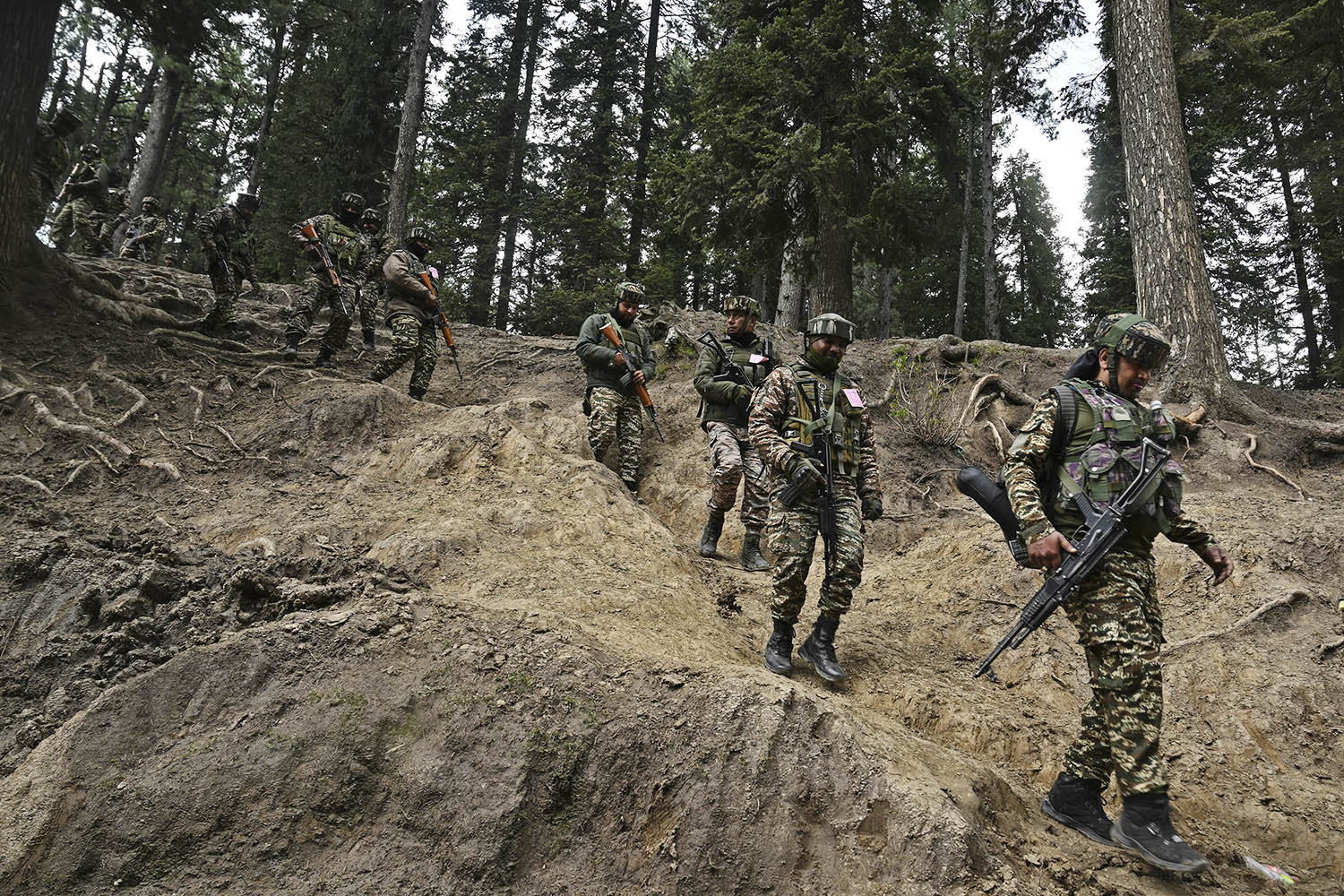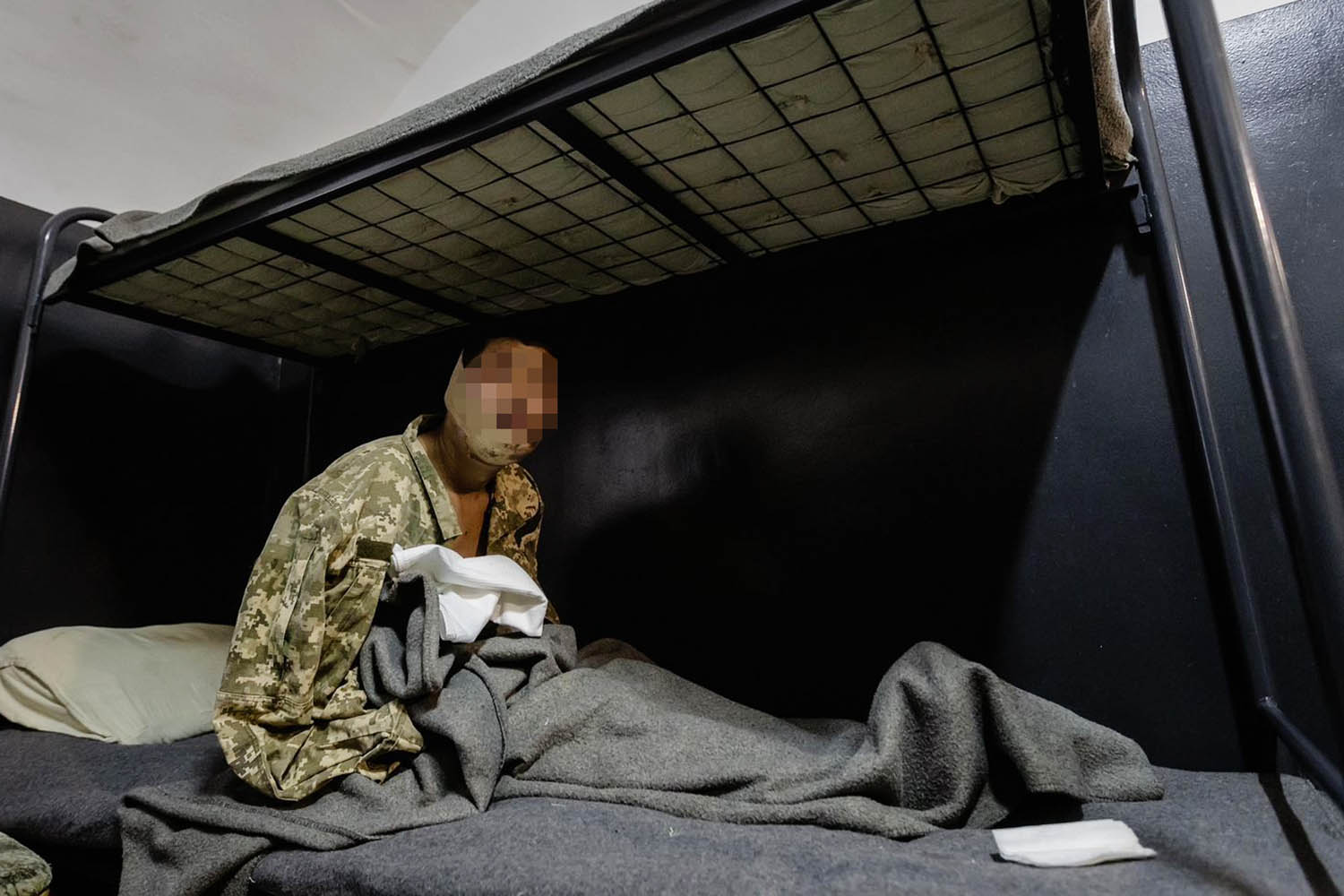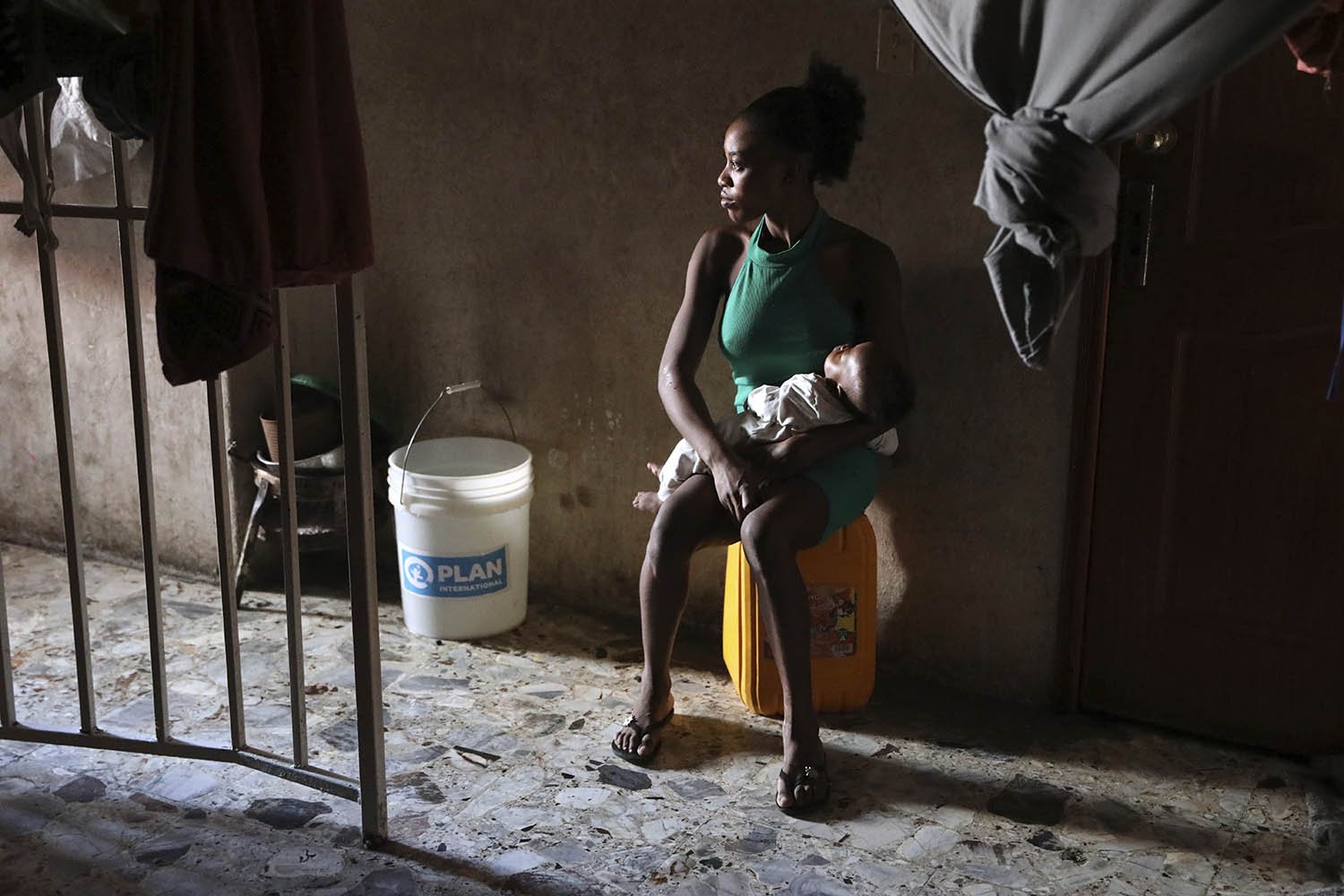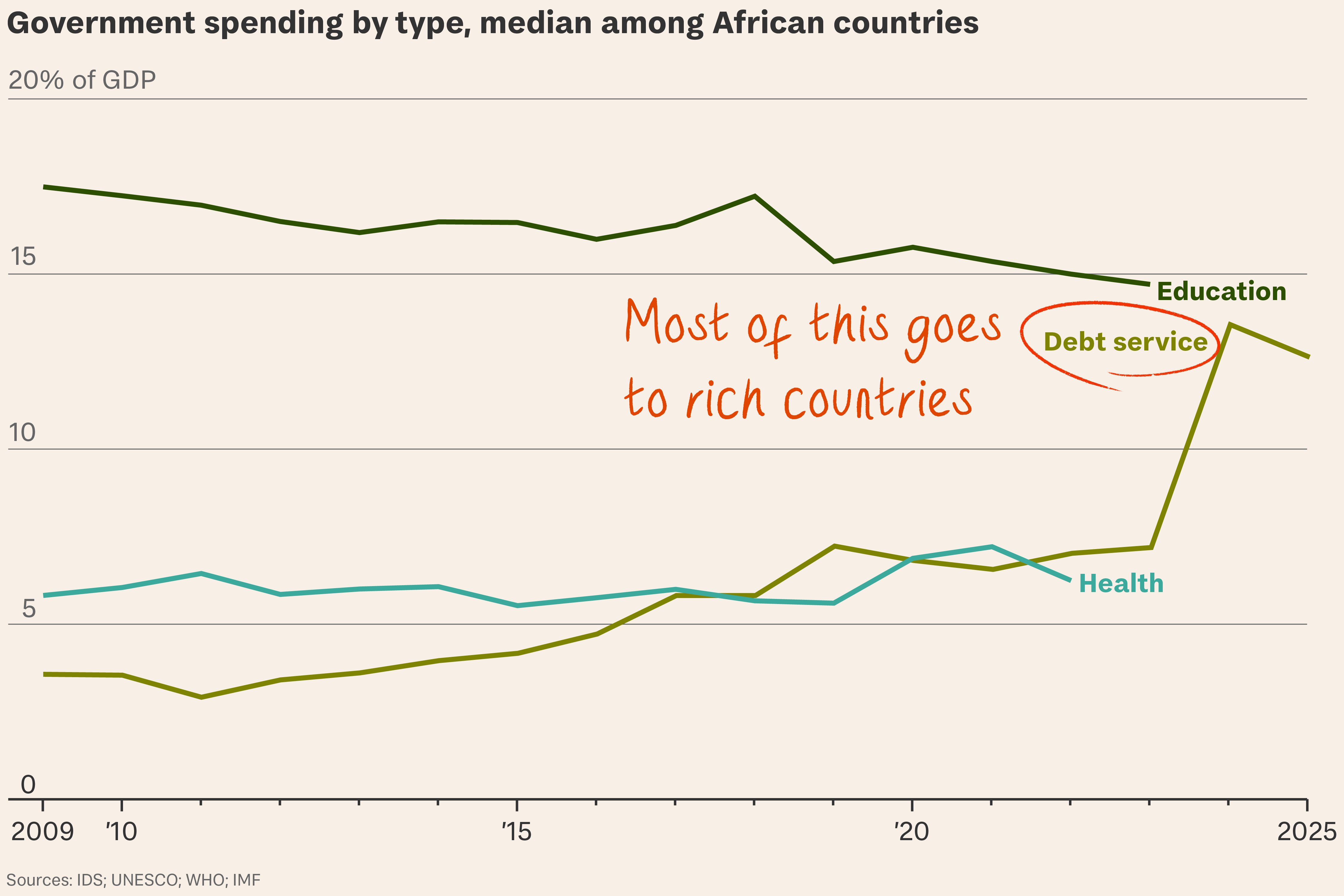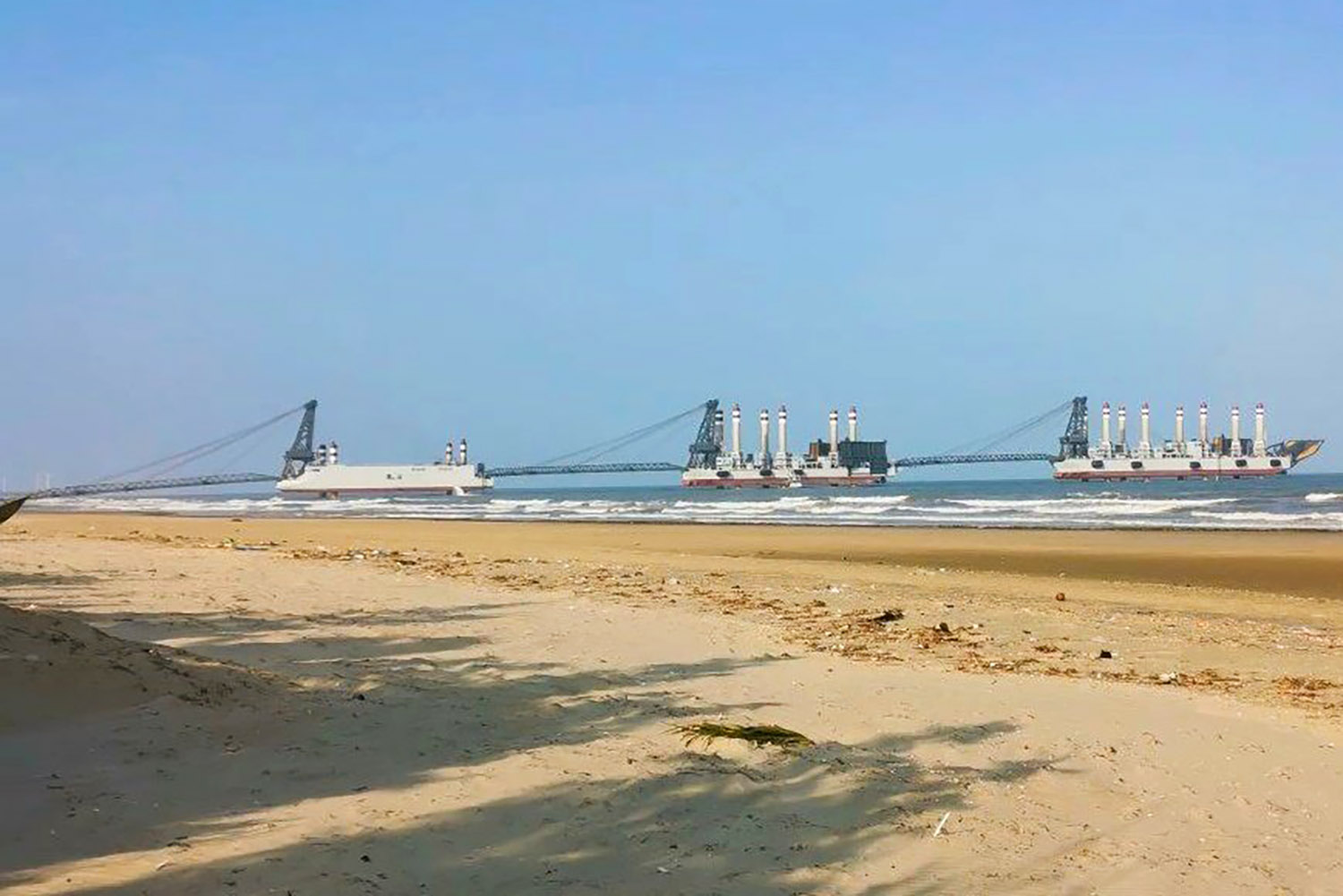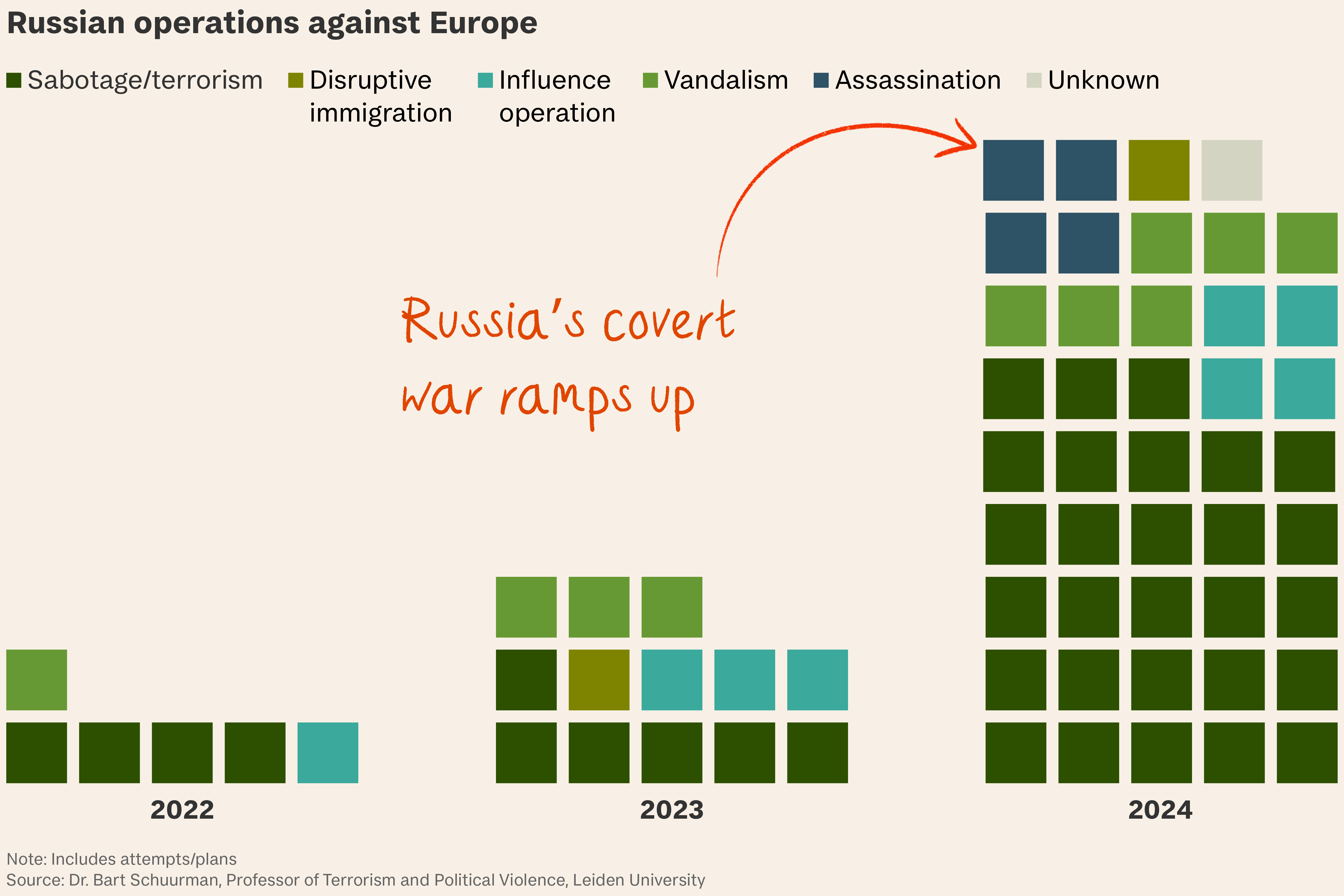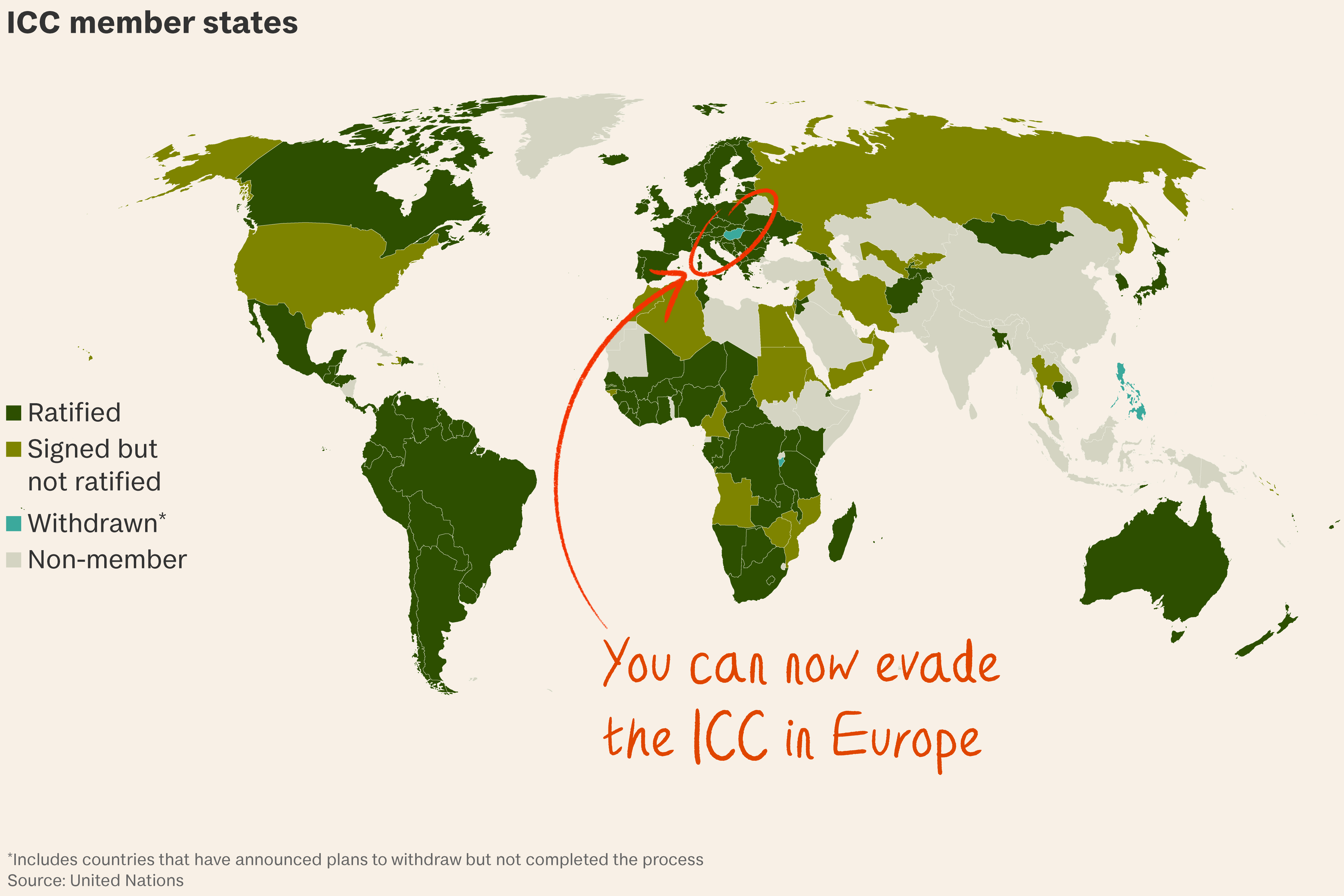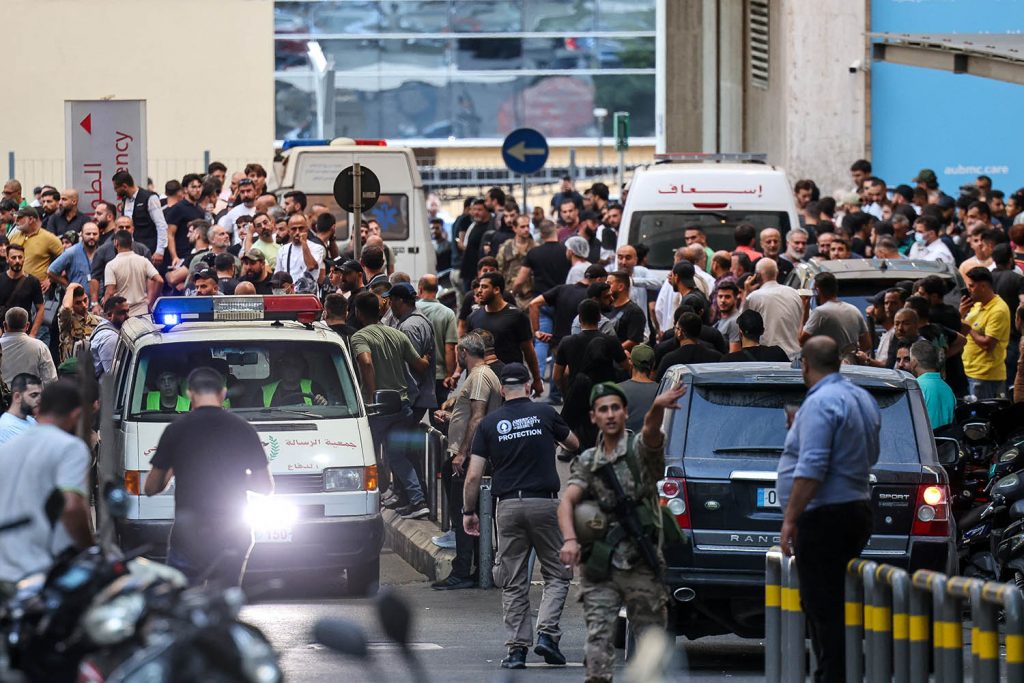
At least 20 people were killed and more than 450 injured when dozens of walkie talkies used by Hezbollah operatives in Lebanon blew up on a second day of attacks blamed by Lebanon on Israel. The Israeli government hasn’t commented officially on the attacks but three sources tell CNN Israel told the US of its plans for an operation in Lebanon, without giving details. Israel’s defence minister said “a new era of war” was beginning, and that its centre of gravity was “moving north”. The second wave of explosions hit as funerals were taking place for 12 people killed on Tuesday by remotely-detonated pagers. Initial reports on what appears to be an extraordinarily elaborate plot to destabilise Hezbollah led half-way round the world.
A woman educated in the UK has denied making the pagers which left a wave of chaos across Lebanon. The Taiwanese electronics manufacturer Gold Apollo said a Hungarian-based firm was responsible for the pagers, which carried the Taiwanese company’s branding and are thought to have contained explosive devices. The Hungarian company, BAC Consulting, was registered in 2022 with a single owner, who told NBC she “didn’t make the pagers” and was “just the intermediate” [sic].
A spokesperson for Hungary’s prime minister wrote on X that BAC Consulting was a trading intermediary not operating in the country. Gold Apollo said BAC paid it from a Middle Eastern bank account. The walkie-talkies that exploded yesterday appeared to bear the name of a different brand.
Gold Apollo’s founder, Hsu Ching-kuang, told NPR he was approached three years ago by a Taiwanese woman calling herself Teresa who claimed to represent a firm called BAC Consulting and persuaded Hsu to sell pagers to BAC.
The owner of BAC is named as Cristiana Bársony-Arcidiacono in the company’s annual reports.
Bársony-Arcidiacono has a visible public profile, with
– a Youtube channel with a playlist of Tango videos;
– an Instagram account dedicated to pencil sketches; and
– a Pinterest account apparently updated just hours after the exploding pagers caused devastation and chaos across Lebanon and raised fears of a wider regional war.
According to her LinkedIn, Bársony-Arcidiacono has studied at UCL, SOAS and the LSE, three prestigious universities in London.
Listing “disaster risk reduction” as one of her skills, Bársony-Arcidiacono says she’s devoted to science and development. Her impressive employment history apparently includes roles at the NSPCC, the International Atomic Energy Agency, Unesco, the European Commission, and most recently BAC Consulting.
A Dr Cristiana Arcidiacono – without the hyphenation – is listed on an old UCL webpage with a Unesco email. She is pictured with colleagues. Tortoise separately found a copy of her physics PhD thesis.
The BAC Consulting website has been shut down, but is archived. Although the company was registered in Hungary just two years ago, a 2021 version claims it “stepped into existence” over a decade ago.
BAC describes itself as a consulting agency offering “a fresh perspective on public relations” and claims partnerships with organisations listed in Bársony-Arcidiacono’s own work history.
Although versions of the website seen by Tortoise don’t specifically mention manufacturing capabilities, the site does list “bridging technology and innovation from Asia” as part of its work. The Budapest address listed on its website matches the one given in a Gold Apollo press release.
Yesterday some Hungarian media outlets reported that BAC was an intermediary and that a different company was behind the deal to sell pagers to Hezbollah – this one based in Sofia, Bulgaria.
Israel’s Mossad spy agency is thought to be behind the attacks conducted via pagers and walkie-talkies, but Israel has not commented on the blasts. The US has also denied any involvement.
Hezbollah had turned to the low-tech devices to try and avoid Israeli surveillance. A security source told Reuters that both the walkie-talkies and the pagers were bought by Hezbollah about five months ago.
